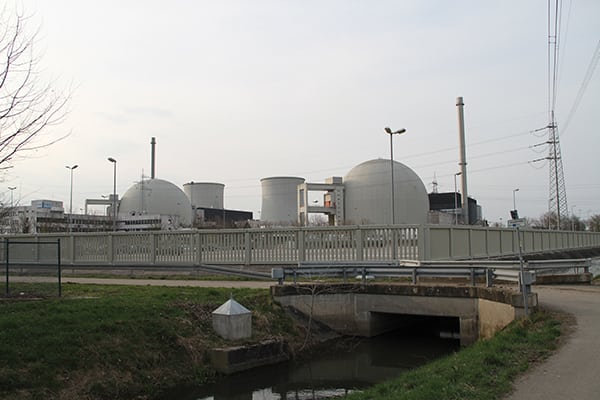Forced Closure of Nuclear Plant Is Unlawful, German Supreme Court Rules
In a ruling that could have reverberating implications for nuclear generators, Germany’s highest administrative law court upheld a lower court’s finding that declared unlawful the State of Hesse’s decision to shut down RWE’s Biblis A and B nuclear plants during the three-month nuclear moratorium in 2011.
The Federal Administrative Court in Leipzig—one of Germany’s five supreme courts—this January dismissed the State of Hesse’s appeals against two rulings by the Higher Administrative Court of Hesse. That court found that the state ministry had no legal grounds when it ordered, on decree from Angela Merkel’s administration, the shutdown of two Biblis reactors on March 18, 2011—just days after the Fukushima disaster in Japan.
At that time, operations were also halted at five other reactors across the country that were built before 1980—Neckarwestheim 1, Brunsbüttel, Isar 1, Unterweser, and Philippsburg 1—as well as Vattenfall and E.ON’s jointly owned 1994-commissioned Krümmel nuclear power plant, which was offline at the time.
But the Fukushima nuclear disaster also prompted the central government to rethink its December 2010 decision to extend the lifespans of all German nuclear power plants by an average of 12 years. Later, an amendment to the Nuclear Power Act in August 2011 mandated that eight of the country’s 17 reactors remain shuttered permanently and that the remaining nine reactors be decommissioned by the end of 2022.
In the lower court decision in February 2013, the Higher Administrative Court of Hesse ruled that RWE had not been properly heard before the shutdown orders were issued. But it also said the order was unlawful because the Environment Ministry had exceeded its discretionary authority. In January, the Federal Administrative Court dismissed the State of Hesse’s appeal because it had not convinced the court on why RWE had not been heard before the shutdown orders were issued.
The decision opens an avenue for nuclear generators to seek damages before a civil court against the states of Hesse, Lower Saxony, Bavaria, and Baden-Wuerttemberg, which forced the eight plants to shut down during the moratorium.
Only RWE, the one utility to have legally challenged the forced closure of the Biblis units (Figure 1), is preparing to take action against the State of Hesse. RWE estimates that decommissioning the Biblis reactors could cost more than €1.5 billion, though industry analysts estimate RWE may file for an estimated €187 million in damages as a consequence of the shutdown. The Biblis reactors, each 1.2 GW, had been licensed in December 2010 to operate until 2019 and 2021.
Germany’s Federal Constitutional Court, meanwhile, is reviewing constitutional complaints by E.ON, RWE, and Vattenfall concerning Germany’s plan to exit nuclear power entirely by 2022. That decision, which could come this year, could have larger repercussions for the Energiewende, or energy transition, which requires the power-intensive nation to massively increase its reliance on renewable generation.
—Sonal Patel, associate editor (@POWERmagazine, @sonalcpatel)
